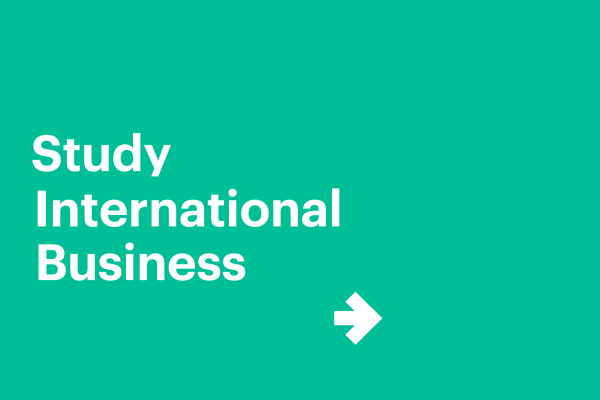EU Alumna, Lotta Miettinen, on Global Mobility with KPMG
Lotta Miettinen is originally from a small town near Helsinki, Finland. She came to complete her BBA at EU, Barcelona through a partnership with her university in Finland. Lotta speaks Finnish, English, intermediate Spanish and some Swedish and of all the places she has visited, Barcelona holds a special place in her heart!
Since graduating, Lotta has been working in global mobility at KPMG. As many of our alumni travel around the world as part of their work, we wanted to learn more about corporate mobility and how the process can be made easier for companies and their employees.
Can you tell us about your professional journey since leaving EU?
After I graduated, I moved back to Finland and took a gap year. I worked for a Finnish bank where we were in charge of currency exchange. I then started a master’s in international business and continued working at the bank in a customer service position. After my master’s, I began working with KPMG Finland and have been with them ever since!
Could you explain your current role?
Our team works with big multinational companies and several Finnish companies, and we help them to mobilize their employees around the world. Some employees are traveling for business trips, while others are doing longer assignments or permanently moving to a new country. We help to coordinate this movement and support them with their global mobility needs, for example by providing end-to-end immigration and relocation support.
What are some of the things to keep in mind when relocating?
There are several important areas to consider when a company sends employees abroad, including immigration, tax and social security implications and relocation matters and local labor laws. In practice this could mean things like obtaining work permits, filing tax returns, following regulated salary requirements, finding a house, opening a bank account, etc.
What are some of the common challenges companies face when dealing with global mobility?
The most recent big challenge has of course been COVID-19. A lot of countries put new restrictions of movement in place and some introduced new permits. Some countries closed completely and only allowed very critical workers to enter. So, this added another step in the process.
Another topical matter at the moment is remote work. A lot of companies are interested in it and have introduced remote working policies. Remote work can lead to tax and social security obligations, or it may be compulsory for the employee to obtain a digital nomad visa. There can also be other consequences that companies face regarding their employees’ remote work locations. The risk of permanent establishment, where a company would become liable for corporate taxation, for example.
What needs to be taken into consideration when dealing with business travel?
On a general level, it’s good to consider all aspects. The employee’s nationality as well as the length and frequency of travel needs to be taken into account, and although many countries have business visas available, they can be quite restrictive. You need to know what type of work can be done on a business visa. It’s quite common in many countries that you cannot do any hands-on work on a business visa, so you may only be able to do things like attend meetings or seminars.


What advice would you give an employer and employee when making internal transfers?
For the employer, my number one piece of advice would be to really dig into the requirements of the country and what is needed from a mobility perspective and also to reserve enough time for the planning as the processes can often be quite time consuming. There are also considerations to be made for the family of the employee: is there support available to them, and how important is the integration of the family into the new country? If the family doesn’t integrate, it really impacts the employee and could lead to ending the transfer.
My advice for the employee depends on the situation. If you are hired from abroad, it would be good to clarify whether the company will arrange the necessary relocation and immigration support. The best-case scenario would be that their company would have a mobility partner to arrange the relocation together with all the necessary permits, etc.
Regarding the less technical side of things, I would advise people to keep an open mind and be aware that the process will take time.
What services can companies offer to expat employees?
I’ve seen companies now introducing expat communities where you receive peer support and can get to know other people. Some companies also provide cultural training, and governments are also offering support for expats. In Helsinki, there is a line for expats that you can call if you have any questions.
What do you think is the future of mobility?
I think demand for mobility is going to increase. I have also started to see European countries issuing remote visas, so the legislation is also changing to make mobility easier. Movement around the world in terms of work is definitely on the rise.
What do you enjoy about your job?
My favorite thing is that no day is the same, which keeps things interesting! I also really enjoy communicating with people abroad, you get to hear a lot of stories from different parts of the world.
Would you recommend working in global mobility?
I would definitely recommend it. It is a growing industry; even the team I work in has doubled since I started. There are more and more opportunities appearing to work with global mobility.
What values or skills did you learn at EU that have helped you in your career?
There are many! One thing that comes to mind straight away is public speaking. Our class sizes were quite small so it was very interactive, which supported the social aspect and intercultural communication. This is one big area that has not only benefited me in my career but also in my personal life.
Being at EU was a great time in my life and I always look back on those days with a warm heart. I made a lot of friends from all over the world that I am still in contact with, and living in Barcelona was amazing – it’s definitely my favorite city in the world!











